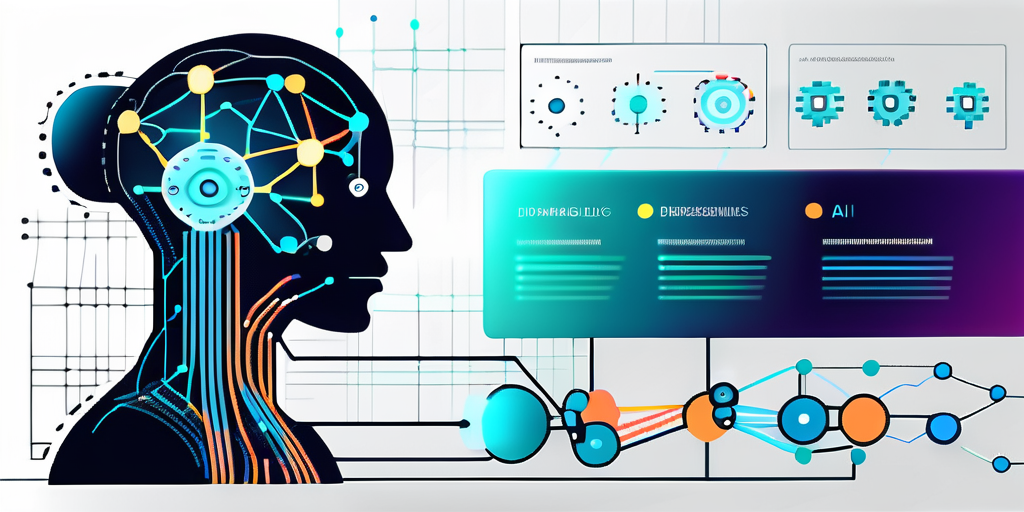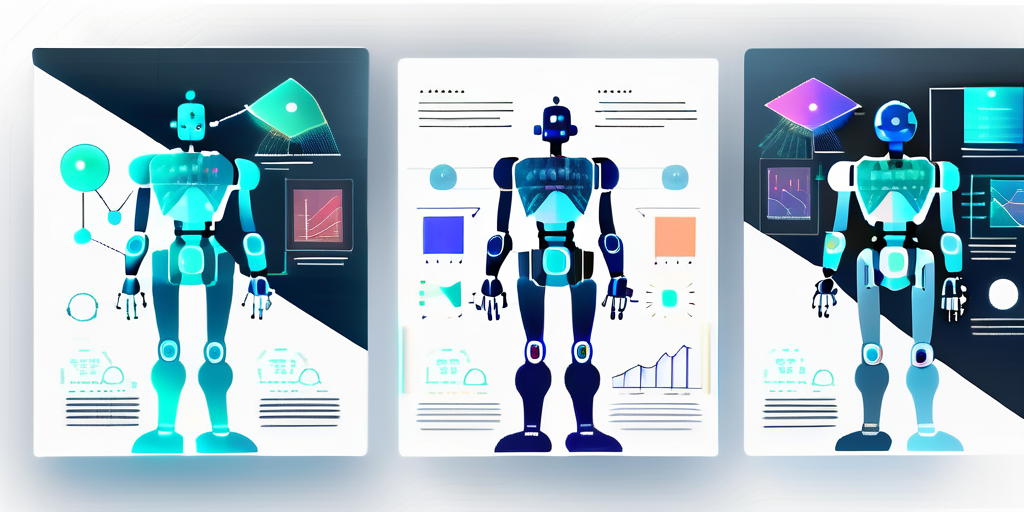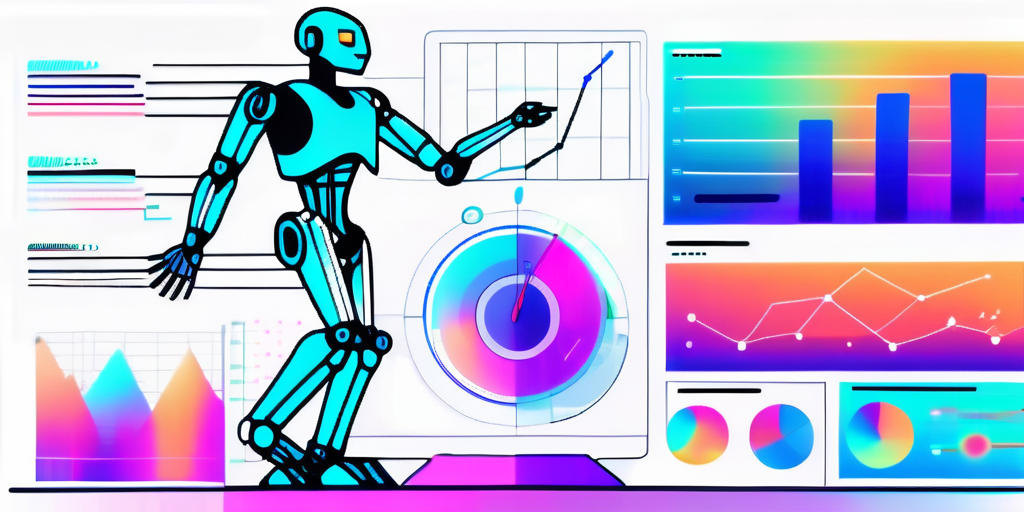
In recent years, the world has witnessed a rapid evolution in the field of technology. One of the most exciting and game-changing developments in this arena is the emergence of Artificial Intelligence (AI). With AI becoming increasingly integrated into various aspects of our lives, it is no surprise that its impact on data analysis is a topic of great interest and speculation. In this article, we will delve into the various aspects of AI and its potential influence on the world of data analysis.
Understanding AI and Data Analysis
Artificial Intelligence (AI) has become a buzzword in recent years, with its potential to revolutionize various industries. But what exactly is AI? In its simplest definition, AI refers to the ability of machines to simulate human intelligence and perform tasks that typically require human cognition, such as problem-solving, learning, and decision-making. AI systems are designed to analyze vast amounts of data and derive valuable insights from it, making it an ideal tool for data analysis.

Defining Artificial Intelligence
Artificial Intelligence, often referred to as AI, is a branch of computer science that focuses on creating intelligent machines capable of performing tasks that would typically require human intelligence. These tasks include understanding natural language, recognizing objects and patterns, and making decisions based on complex data sets. AI systems are designed to learn from experience, adapt to new information, and improve their performance over time.
AI can be categorized into two main types: narrow AI and general AI. Narrow AI, also known as weak AI, is designed to perform specific tasks and is limited to a narrow domain. For example, a chatbot that can answer customer queries is an example of narrow AI. On the other hand, general AI, also known as strong AI, refers to machines that possess the ability to understand, learn, and apply knowledge across different domains, similar to human intelligence.
The Role of Data Analysis in Business
Data analysis plays a crucial role in today’s business landscape. It involves the process of examining data sets to uncover patterns, trends, and correlations that can be used to inform decision-making and drive business strategies. Businesses across various industries heavily rely on data analysis to gain a competitive edge, optimize operations, and enhance customer experiences.
Data analysis encompasses a wide range of techniques and methodologies, including statistical analysis, data mining, predictive modeling, and machine learning. These techniques help businesses make sense of the vast amounts of data they collect and generate, enabling them to make informed decisions and identify opportunities for growth.
With the advent of AI, data analysis is undergoing a significant transformation. AI-powered data analysis tools can process and analyze data at an unprecedented scale and speed, enabling businesses to derive valuable insights in real-time. These tools can automatically identify patterns, detect anomalies, and generate accurate predictions, helping businesses make data-driven decisions with greater confidence.
Furthermore, AI can augment human capabilities in data analysis. By automating repetitive tasks and handling complex calculations, AI systems free up human analysts to focus on more strategic and creative aspects of data analysis. This collaboration between humans and AI can lead to more accurate and comprehensive insights, ultimately driving innovation and growth.
In conclusion, AI and data analysis go hand in hand, with AI serving as a powerful tool to enhance the capabilities of data analysis. As businesses continue to generate and collect vast amounts of data, the role of AI in data analysis will only become more prominent. By harnessing the power of AI, businesses can unlock valuable insights, gain a competitive edge, and drive success in today’s data-driven world.
The Intersection of AI and Data Analysis
The intersection of artificial intelligence (AI) and data analysis is a fascinating area that holds immense potential for transforming the way we extract insights from vast amounts of data. AI brings a new level of innovation to data analysis, offering exciting possibilities for businesses and organizations.
How AI Enhances Data Analysis
One of the most significant advantages AI brings to data analysis is its ability to process and analyze data at an unprecedented scale and speed. Traditional data analysis methods often struggle to handle the sheer volume of data generated in today’s digital world. However, AI algorithms can handle complex computations quickly, enabling businesses to make faster and more informed decisions based on real-time data.
Moreover, AI has the remarkable capability to uncover hidden patterns and correlations that might have otherwise gone unnoticed by human analysts. By applying sophisticated machine learning techniques, AI systems can identify intricate relationships within data sets, facilitating more accurate predictions and actionable insights. This ability to discover hidden insights can revolutionize industries such as healthcare, finance, and marketing, where making data-driven decisions is crucial.
Challenges at the Intersection of AI and Data Analysis
While the integration of AI into data analysis holds immense potential, it also presents certain challenges that need to be addressed. One significant hurdle is the lack of interpretability and transparency in AI algorithms. Traditional data analysis methods often allow analysts to understand the reasoning behind the insights generated. However, with AI systems, the inner workings of the algorithms are not always transparent. This can hinder trust and acceptance of AI-generated insights in critical decision-making processes.
Additionally, the reliance on AI for data analysis raises concerns regarding data privacy and security. As AI systems access and process large volumes of sensitive data, ensuring robust security measures becomes paramount to safeguard against potential breaches and misuse. Organizations must invest in robust cybersecurity measures and adhere to strict data protection regulations to maintain the trust of their customers and stakeholders.
Furthermore, the integration of AI into data analysis requires organizations to address ethical considerations. AI algorithms are only as unbiased as the data they are trained on. If the data used for training contains biases, the AI system may perpetuate those biases, leading to unfair or discriminatory outcomes. It is essential for organizations to be mindful of these ethical implications and actively work towards developing fair and unbiased AI systems.
In conclusion, the intersection of AI and data analysis offers exciting possibilities for businesses and organizations. AI’s ability to process vast amounts of data quickly and uncover hidden insights can revolutionize decision-making processes. However, challenges such as interpretability, transparency, data privacy, security, and ethics need to be carefully addressed to fully harness the potential of AI in data analysis.
Predicted Impacts of AI on Data Analysis

Speed and Efficiency Improvements
One of the most immediate benefits of AI in data analysis is improved speed and efficiency. AI systems can analyze vast amounts of data in a fraction of the time it would take a human analyst, thus significantly accelerating the decision-making process. This enhanced speed enables businesses to react more quickly to changing market dynamics and make data-driven decisions in near real-time.

For example, imagine a retail company that wants to analyze customer feedback from various sources such as social media, online reviews, and customer surveys. With traditional data analysis methods, it would take a team of analysts several weeks or even months to manually go through all the data and extract meaningful insights. However, with AI-powered data analysis, the same task can be completed within a matter of hours or even minutes. This allows the company to identify emerging trends, address customer concerns, and improve their products or services in a timely manner.
In addition to speed, AI also improves the efficiency of data analysis. AI systems can automate repetitive tasks such as data cleaning, data preprocessing, and feature selection, freeing up human analysts to focus on more complex and strategic aspects of analysis. By automating these mundane tasks, AI not only saves time but also reduces the risk of human error, ensuring more accurate and reliable results.
Enhanced Accuracy in Data Analysis
Accuracy is another area where AI can make a substantial impact on data analysis. By leveraging advanced machine learning models, AI systems can identify subtle patterns and correlations that might not be apparent to human analysts. This increased accuracy translates into more precise insights and predictions, enabling businesses to make more reliable and informed decisions.
For instance, consider a financial institution that wants to predict credit default risk based on various customer attributes such as income, credit history, and loan repayment behavior. Human analysts may rely on traditional statistical models to make these predictions. Which can be limited in their ability to capture complex patterns in the data. However, AI-powered data analysis can utilize sophisticated algorithms such as neural networks or random forests to uncover hidden relationships. And nonlinear interactions among variables, resulting in more accurate credit risk assessments.
Moreover, AI systems can continuously learn and adapt from new data, improving their accuracy over time. This capability is particularly valuable in dynamic environments where data patterns and relationships may change frequently. By continuously updating their models, AI systems can provide up-to-date and accurate insights. Enabling businesses to stay ahead of the competition and make proactive decisions.
In conclusion, the integration of AI into data analysis brings numerous benefits. Including improved speed and efficiency, as well as enhanced accuracy. These advancements have the potential to revolutionize decision-making processes across various industries. Empowering businesses to leverage data-driven insights for strategic growth and competitive advantage.
The Future of AI in Data Analysis
The future of AI in data analysis holds immense potential for advancements in the field. As AI technologies continue to evolve, we can expect more sophisticated algorithms and models to emerge. These advancements will enable AI systems to delve deeper into data analysis, providing even more valuable insights and predictions.

One exciting development is the integration of AI with other emerging technologies. Such as big data analytics and the Internet of Things (IoT). This integration holds great promise for the future of data analysis. The ability to extract insights from vast and diverse data sources will become increasingly crucial. And AI will play a central role in making sense of this data overload.
Imagine a future where AI-powered data analysis systems can seamlessly process and analyze data from various sources. Including social media platforms, sensors, and connected devices. These systems will be able to identify patterns, trends, and correlations. That can help businesses make informed decisions and gain a competitive edge.
Preparing for an AI-Driven Data Analysis Future
As AI continues to reshape the field of data analysis. It is vital for businesses and individuals to prepare for an AI-driven future. Embracing AI technologies and investing in the necessary infrastructure and skills. Will be crucial to remain competitive in this rapidly evolving landscape.
One important aspect of preparing for an AI-driven future is ensuring that organizations have access to high-quality and diverse datasets. AI systems rely heavily on data to learn and make accurate predictions. Therefore, businesses must prioritize data collection, storage, and management to ensure they have the necessary resources to leverage AI effectively.
Moreover, it will be essential to address ethical considerations surrounding AI and data analysis. While AI has the potential to revolutionize data analysis, it also raises concerns about privacy, bias, and transparency. Establishing robust governance frameworks and ensuring responsible AI practices are in place. Will help mitigate risks and build trust in AI-generated insights.
Organizations must also focus on developing the necessary skills and expertise to effectively utilize AI in data analysis. This includes training employees on AI technologies, data analysis techniques, and ethical considerations. By investing in continuous learning and development. Businesses can empower their workforce to leverage AI tools and extract maximum value from their data.
In conclusion, the impact of AI on data analysis is poised to be transformative. AI brings unprecedented speed, efficiency, and accuracy to the field, enabling businesses to unlock valuable insights and make data-driven decisions. While challenges and considerations exist, the potential developments and future possibilities are vast. By embracing AI and taking proactive steps to prepare. Businesses can harness the power of AI to drive innovation and stay ahead in an increasingly data-driven world.